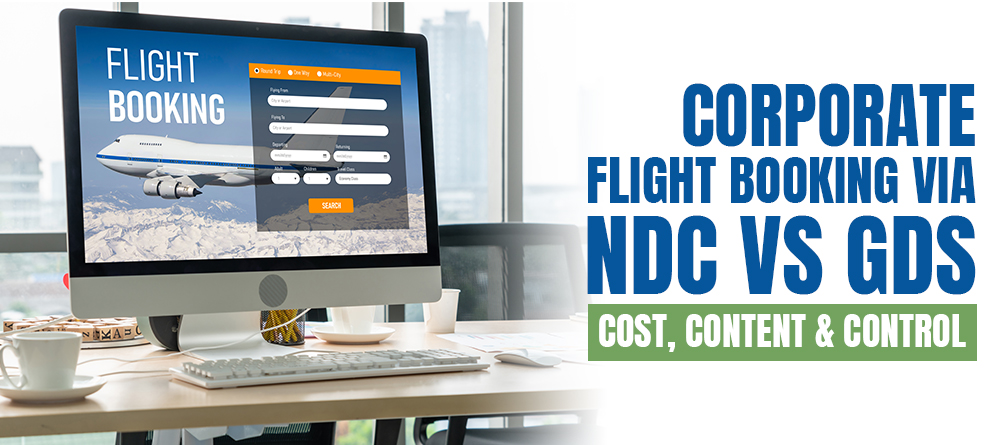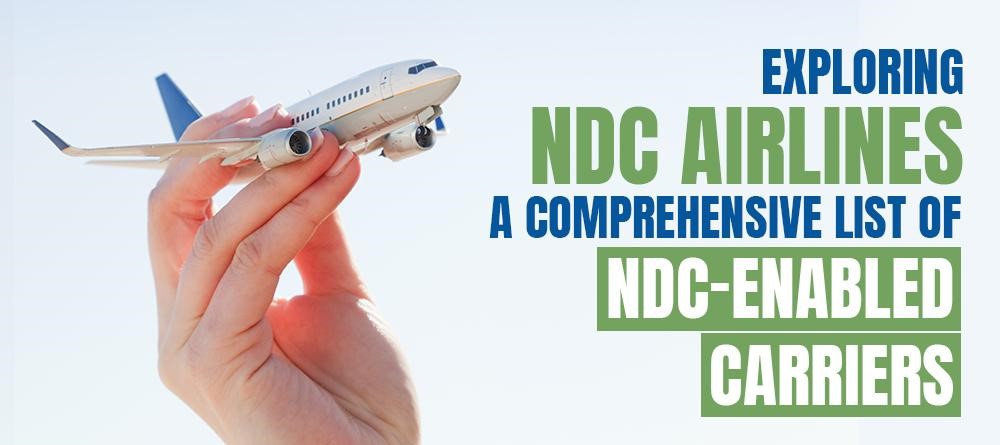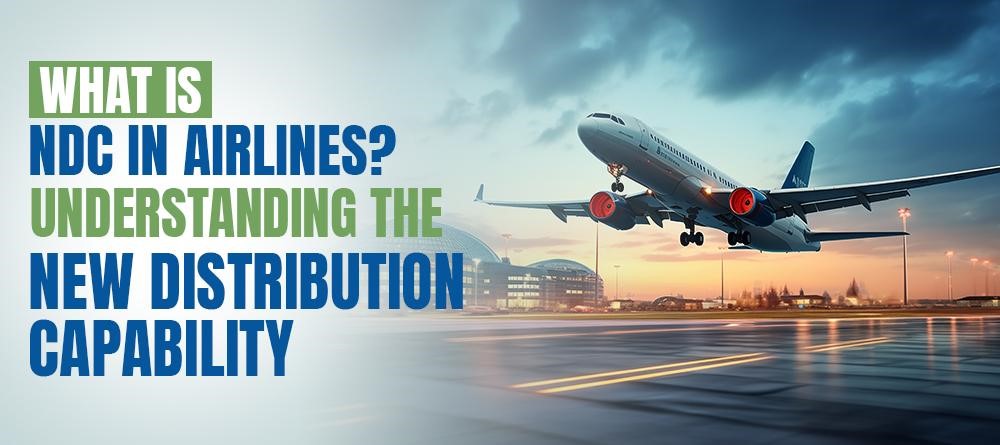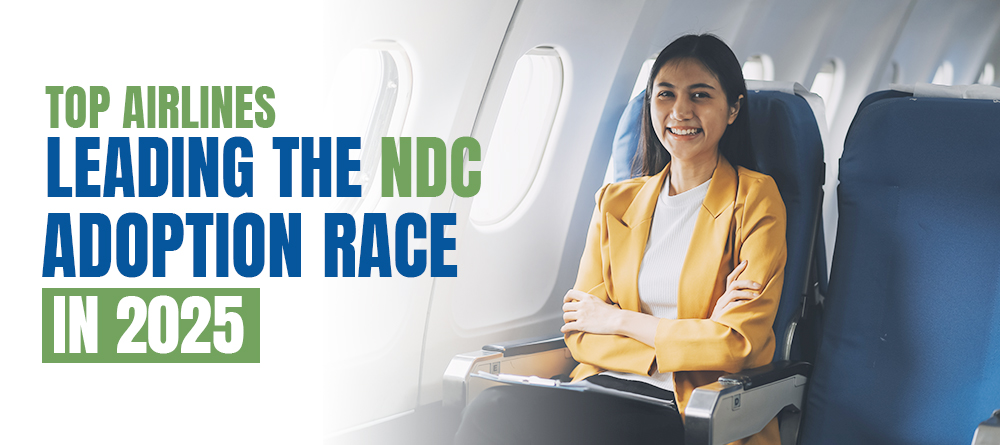Corporate Flight Booking via NDC vs GDS: Cost, Content & Control

Booking flights for corporate travel is no longer just about finding the cheapest fare. Businesses today expect better content, flexible services, and cost efficiency while maintaining control over travel policies. Traditionally, Global Distribution Systems (GDS) have been the backbone of corporate flight booking. But with the rise of the New Distribution Capability (NDC), the landscape is shifting.
In this blog, we explore NDC vs GDS in the context of corporate flight booking, focusing on cost, content, and control.
Understanding GDS in Corporate Travel
GDS platforms have been around for decades, acting as intermediaries between airlines, travel agencies, and companies. They provide a vast inventory of flight options in a standardized format, making it easy to compare fares and schedules.
For years, corporate travel managers relied on GDS for its consistency, policy compliance, and ability to integrate with expense management tools. However, the information delivered through GDS is often limited to fares and schedules, lacking rich airline content such as seat selection, baggage options, or personalized offers.
What is NDC and Why Is It Different?
NDC is a modern airline distribution standard introduced by the International Air Transport Association (IATA). It allows airlines to sell flights directly with enhanced content and personalization. Instead of relying on legacy systems, NDC uses XML-based technology to deliver richer information about fares, ancillaries, and special offers.
For corporate travelers, this means better transparency, more flexibility, and access to exclusive content that might not be available on GDS channels.
At NDC Deals, we work with airlines using NDC technology to offer companies more options, better pricing, and tailored services for their travel needs.
Cost: Which Option is More Budget-Friendly?
One of the main concerns for corporate travel managers is cost. GDS booking fees, airline surcharges, and outdated fare structures can increase expenses. Many airlines have started applying extra fees for tickets booked through GDS channels to encourage the use of NDC.
NDC often provides cheaper fares because it allows airlines to bypass third-party distribution costs. Businesses booking through NDC may get access to special corporate bundles, discounted ancillaries, or dynamic pricing based on demand.
This cost advantage is especially appealing for companies that manage large travel volumes. By avoiding unnecessary surcharges, corporate travelers can reduce overall travel spend without compromising on quality.
Content: Access to Better Options
The biggest difference between NDC vs GDS is the quality of content.
GDS systems are limited to standard fare details. They rarely include airline-specific offers, extra baggage deals, or upgrade options. Corporate travelers booking through GDS often need to make additional arrangements directly with the airline to get extra services.
With NDC, airlines can display:
- Fare bundles with baggage and seat selection included.
- Special deals on premium economy or business class.
- Paid lounge access or priority boarding options.
This gives travel managers better visibility and control while ensuring employees have a comfortable travel experience.
We help businesses access these exclusive NDC offers, which often go beyond what is visible on GDS platforms.
Control: Policy Compliance and Flexibility
Corporate travel policies are crucial for managing budgets and ensuring compliance. GDS systems have long been trusted for this because they integrate seamlessly with corporate booking tools and reporting systems.
However, NDC is catching up fast. Many travel management platforms are now compatible with NDC content, giving companies the same level of control they are used to—while adding flexibility.
Through NDC, businesses can get tailored offers based on their travel history and preferences. They can also access changeable or refundable fare bundles that fit corporate policies better than standard fares.
Why Businesses Are Moving Towards NDC
The shift from GDS to NDC is not just about technology; it’s about value. Companies are realizing that sticking to traditional GDS bookings may mean missing out on exclusive fares and services. Airlines are also incentivizing NDC bookings by offering better deals and avoiding distribution fees.
Early adopters of NDC report improved traveler satisfaction, reduced costs, and better visibility of options. For companies looking to make their travel programs more efficient and employee-friendly, NDC offers a modern alternative.
Should You Completely Replace GDS?
Not necessarily. For some companies, GDS still plays an important role, especially when dealing with complex itineraries or multiple airlines. The best strategy might be a hybrid approach—using GDS for certain bookings and NDC for others.
As more airlines and travel tools adopt NDC, the shift will become smoother. Businesses that start experimenting with NDC now can gain a competitive edge by learning how to make the most of these richer offers.
How We Make Corporate Flight Booking Easier
At NDC Deals, we help companies unlock the full potential of NDC technology. Our platform ensures businesses access better fares, exclusive ancillaries, and personalized services—while staying within policy. We focus on making corporate flight booking more efficient, transparent, and cost-effective.
Final Thoughts
The debate of NDC vs GDS in corporate travel is less about choosing one over the other and more about understanding how both can work together. NDC provides richer content, better pricing, and more flexibility—making it an attractive option for modern businesses.
Companies that adopt NDC early are likely to enjoy cost savings, happier travelers, and better control over their bookings. While GDS will remain relevant for certain types of trips, NDC is clearly shaping the future of corporate flight booking.
Businesses that want to stay ahead of the curve should start exploring NDC options now—because the way we book corporate flights is changing faster than ever.




